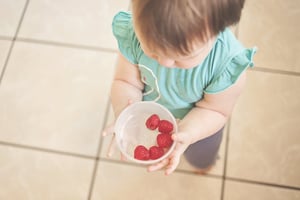A tragedy at a preschool in New York City made headlines across the country. A three-year-old with a known dairy allergy was fed a grilled cheese sandwich for lunch. He went into anaphylactic shock and was rushed to the hospital by his mother. Unfortunately, the hospital was unable to save him. The preschool was shut down pending an investigation and sadly a family has been irreparably broken.
This is the worst fear of every parent of a child with severe allergies. Any organization caring for children with allergies owes it to the children and their families to do everything possible to keep them safe. There’s an extensive article on our website detailing different types of allergies and treatments. With severe allergies on the rise, organizations serving children must be knowledgeable about the signs of an allergic reaction and how to handle these situations.
Have a Plan for Each Child
When a child with a severe allergy enrolls in a childcare center, it’s imperative to make a plan for their safety. Work with parents to identify the signs of an allergic reaction and ensure that treatment options, like Benadryl or an EpiPen, are on hand. It’s important to know how severe the allergy is; must the child’s food be kept completely separate from others? Work with teachers to ensure that everyone knows about every child’s allergy so foods are not accidentally served to the wrong child.
Responding to Emergencies
One detail from the tragedy in New York was that the center failed to call 911 and called the parents instead. No one knows if the delay in treatment had any impact on the tragic outcome but it illustrates how important it is to have a plan for a reaction. It can be easy to panic if a child is having a severe reaction. It’s also possible for a reaction to worsen rapidly, going from seemingly mild to deadly in minutes. If a child with a known severe allergy has accidentally been given a food they're allergic to, it’s best to err on the side of caution and call for emergency services. This is the best way to ensure that professionals are caring for the child, even if the reaction stays mild.





